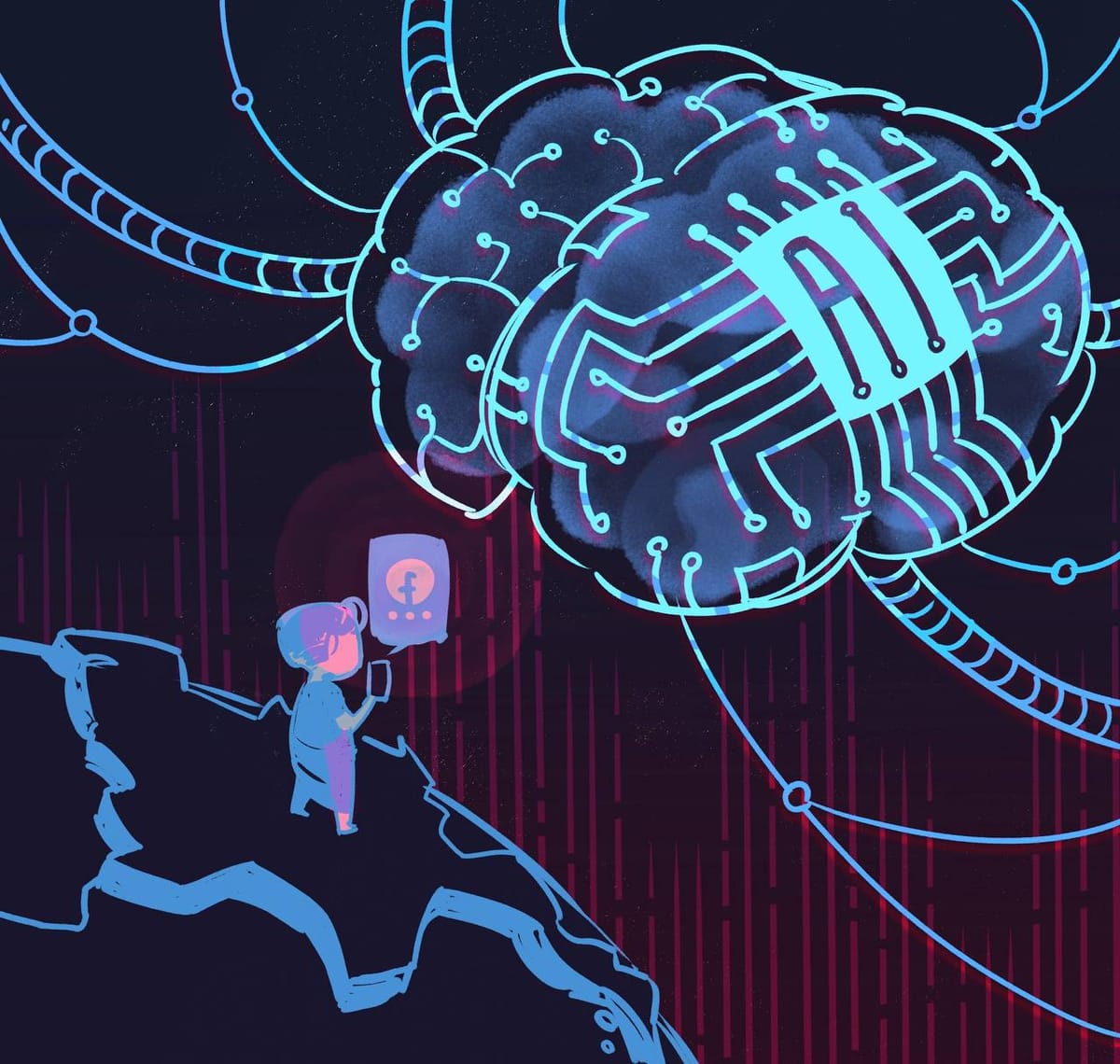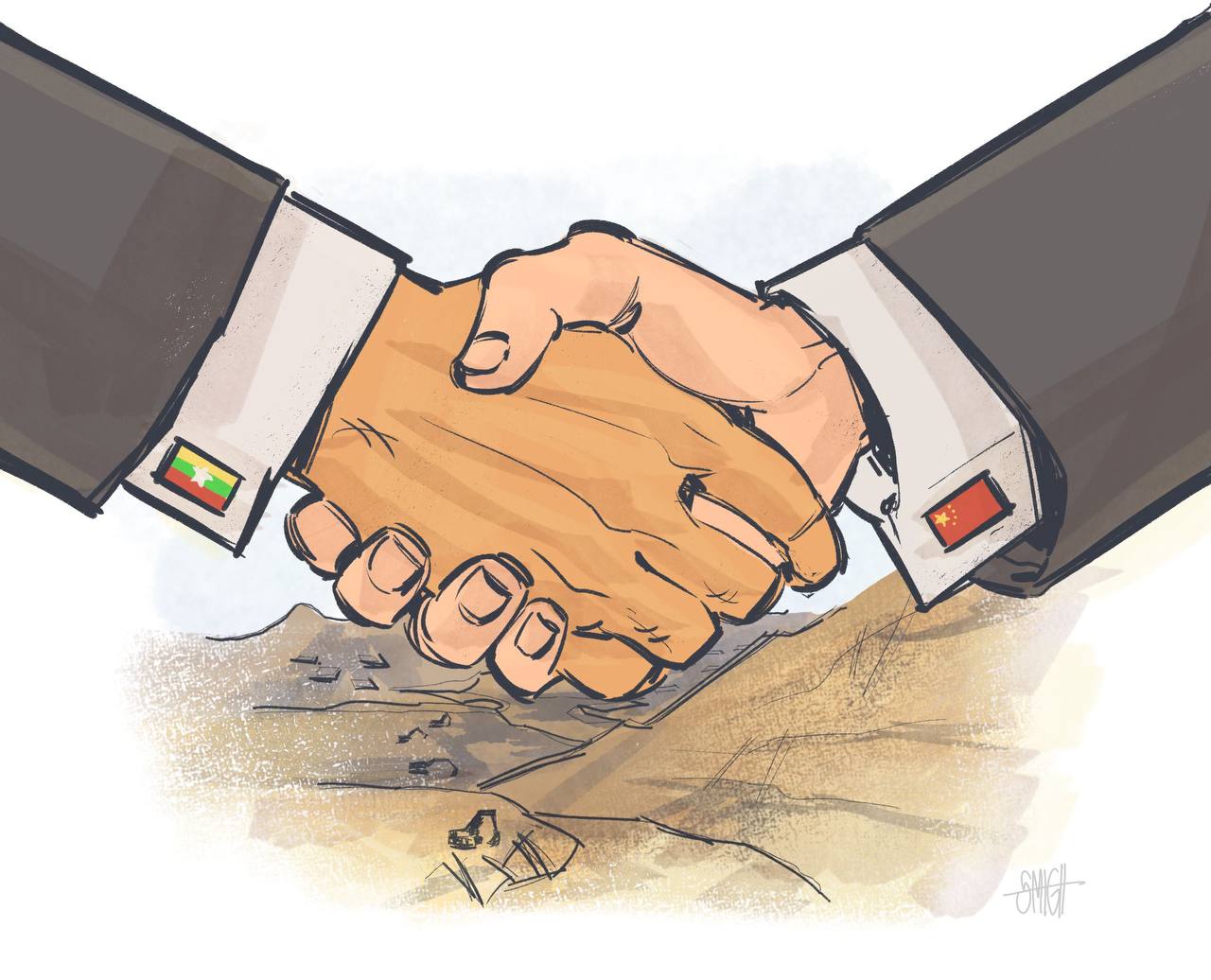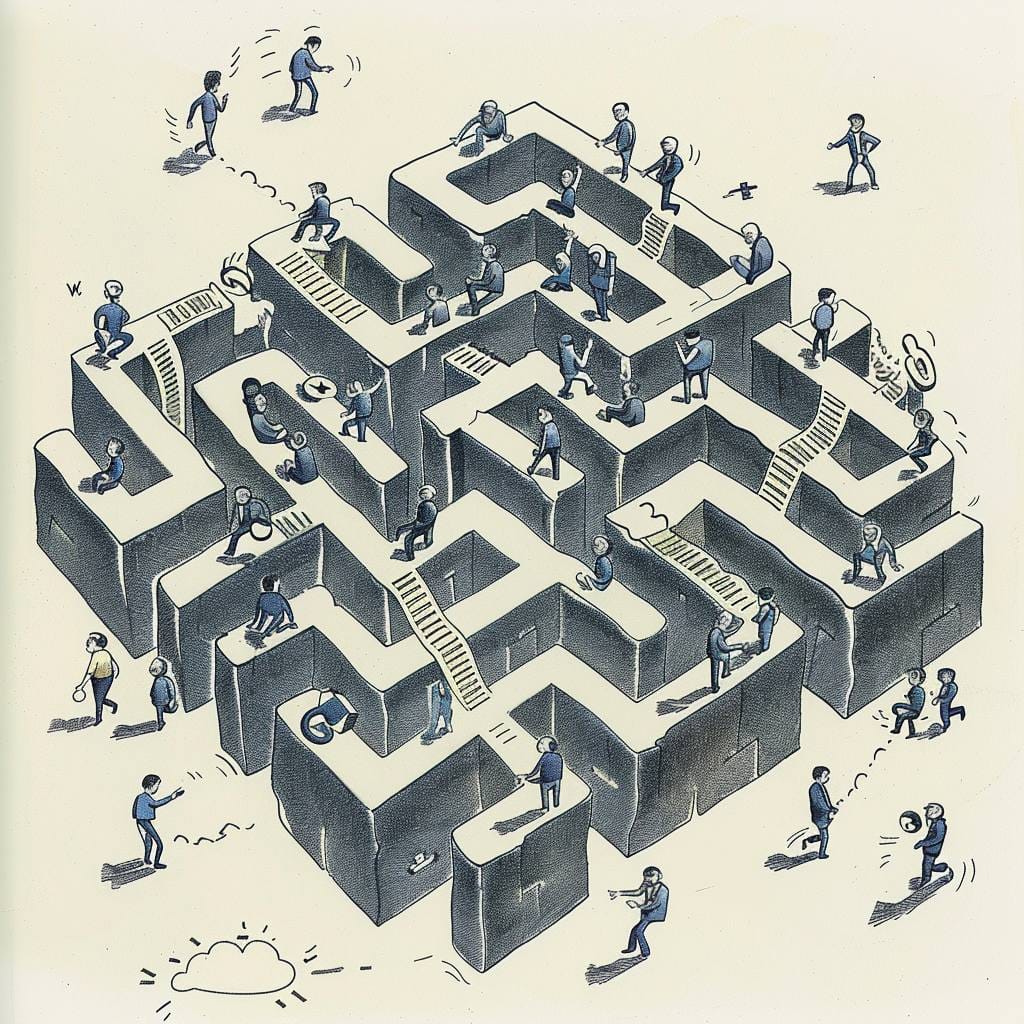
After the Industrial Revolution of 1830 emerged in the world, development progressed rapidly, leading to the invention of airplanes and computers. Finally, due to the internet, the world has become what we could call a global village.
The world doesn't stand still. Now, we have entered the era of Artificial Intelligence (AI) technology, also known as synthetic intelligence.
AI is incredibly powerful. While it may not be able to do everything, AI can now perform many tasks that a human can do. Even from the perspective of an ordinary person in daily life, we can see AI being used for design, video production, report writing, grading, and many other higher-level tasks.
To give some examples of what can be done with AI: creating audio, tracking business operations, generating avatars, building brands, using sales and marketing tools, creating images, translating languages, improving productivity, writing code, creating websites, generating assets for videos, and much more.
Moreover, AI is now being used in various fields such as business, healthcare, education, the environment, and climate change.
AI as a Discipline
While AI can be used in many sectors, it's not something that can be easily utilized without effort. To understand this situation, imagine the early days of computers. Even if a computer was placed in front of you, you wouldn't have known how to use it. Today, computers are essential machines that can be used for multiple purposes. However, you need to know how to use them. The same applies to AI. If you want to use it, you need to know how to do so. Learning to use it is a discipline in itself. It's also an investment.
"AI development is moving too fast. Even now, the network expansion is rapid. Progress will accelerate. Technological advancement has become the fastest in the 21st century. So, we need to prepare to keep up. In about two years, there might be more tasks involving AI. If we don't understand its concept and movement, we'll be left behind," warns Ko Thiha Aung, who works as an IT technologist.
As Ko Thiha Aung says, the pace of AI is indeed very fast. But here, we need to consider what Myanmar has prepared for AI.
Even now, in Myanmar, when most people hear "internet," they only think of Facebook. Young people might be on TikTok and YouTube. The habit of visiting websites is not yet common among the majority. So, it's concerning whether Myanmar people can keep up with the pace of AI.
Regardless, the AI current in the world continues to flow with strong momentum.
AI Among Superpowers
Currently, China is advancing towards AI at a rapid pace. It has created about 6 times more AI inventions like Chatbots than its close competitor, the United States.
The World Intellectual Property Organization (WIPO) has also reported that there were over 50,000 patent applications for Generative AI in the past decade, indicating that we're at the dawn of a new AI era. A quarter of this number emerged in 2023 alone.
China created over 38,000 Generative AI inventions between 2014 and 2023. The United States, on the other hand, had only 6,276 Generative AI inventions during the same period. This raises the question of whether the United States will fall behind China in the upcoming new era of AI.
"Our neighbor China is running ahead in AI. This is something to take note of. China will only sell high-value technology to big countries. We might end up using what they've perfected or what they no longer need. We should be studying it now. Even countries like Pakistan are preparing to use AI extensively. If we fall behind, it could be a generational gap," says Ko Than Lwin Htoo, a veteran IT professional in Myanmar.
Tech Giants in Competition
At this time, Elon Musk, the owner of the world-famous Tesla group, has announced that he's about to introduce a better AI chatbot. He's trying to introduce an AI chatbot named Grok 2 by next month (August).
Elon Musk has indicated that Grok 2, with its comprehensive data and language capabilities, will be seen as something new and innovative.
Meanwhile, his rival Zuckerberg is urging AI companies to collaborate on creating an AI so perfect it could be likened to God. Zuckerberg has also suggested naming this AI "One True AI."
Not long ago, Yuval Noah Harari, an author who studies modern technology, wrote that humans are getting closer to living beyond 1,000 years with the help of nanotechnology. The nanotechnology Harari refers to is a combination of biotechnology and AI. This gives an idea of how far experts are planning to go with AI.
AI is Here
Indeed, AI is entering various fields due to its usefulness.
In Japan, someone has even won a prestigious literary award by writing a novel with AI assistance. Japanese author Rie Kudan won the country's valuable literary prize by writing a novel with AI help. Rie Kudan honestly admitted that 95% of her novel "The Tokyo Tower of Sympathy" was created by AI, with only 5% being her own work.
China has started experimenting with AI hospitals. Robot doctors powered by AI are providing medical treatment, and they've achieved results showing they can treat up to 3,000 patients a day.
AI recently shook up Hollywood as well. This issue even led famous directors like Christopher Nolan to stand up and respond on behalf of human actors.
International film companies planning to pay extras only once and then reuse their image multiple times with AI, or writing scripts that typically require thousands of people using AI, caused a stir throughout Hollywood.
Currently, the global coverage of Generative AI networks is only about 54%.
However, in the next few years, the network coverage of Generative AI is set to increase even more. Business owners are already experimenting with AI. They're trying to replace humans with AI, and if the results are good, AI will gradually infiltrate workplaces alongside factory workers.
So, it should be easy to understand to what extent and in what positions AI has already advanced.
This raises an important question: Will AI dominate and overpower humans, or will humans control AI and use it systematically? Will AI cause people to lose job opportunities?
This has become a global question. Even the leading AI tech giants themselves have different views and answers, making it difficult to give a definitive answer.
Ko Than Lwin Htoo, a veteran IT professional in Myanmar, says, "I don't think this will cause mass unemployment for humans. It will filter out those with skills. Those who can think outside the box will move forward. Those who take the easy way out will fall behind without realizing it."
AI Next Door
Around the world, forward-thinking countries are already encouraging AI learning. They're planning to include AI lessons in school curricula, and governments themselves are planning to invest in AI.
This includes Myanmar's neighbors China and Thailand, as well as Pakistan.
Currently, Pakistan is experimenting with incorporating AI technology assistance into school teaching and exam assessment. There are discussions in Pakistan's higher education circles that having AI check instead of the human system, which can be emotional, might be better.
Thailand, home to millions of Myanmar workers, is also preparing to move forward with AI. The Thai government is drafting plans to invest up to one billion baht to create about 30,000 AI job opportunities within the next 3 years.
Thai government authorities have commented that they will need to integrate ethics, government administration systems, infrastructure development, technology and innovation, and human capacity building step by step. The government is also budgeting for the introduction of AI curricula in Thai schools.
So, it's clear how Myanmar's neighboring countries, China and Thailand, are preparing to take the initiative in AI.
"The world is preparing to move with AI. Some countries are keeping up. Countries that can't keep up with that will have a hard time surviving. While the world continues to move forward, our young people should also be preparing for this. I believe there will come a time when AI will advance further than human resources. Countries that rely too much on human resources, spending time and effort on things that could easily be done with AI, won't have it easy," says Ko Hein Soe Thant, a technology expert.
His words contain worrying implications for Myanmar.
Based on the current AI movements in Myanmar's neighbor China, in the future, AI and China, China and AI might become inseparable. If this happens, the Chinese language will likely move to the forefront.
The new generation in Myanmar should now be preparing to learn English, AI technology, and the Chinese language for the future.
Parents also need to move away from the old ways and look at the world with new thoughts and modern perspectives. They need to foresee and train their children to become familiar with technology and study AI lessons for their future.
But that's not all. Governments themselves, as leaders of the country, need to have foresight.
While the international community is taking big steps towards AI, restrictions on platforms like Facebook in our country should be eased. This will make technology accessible to everyone. Only when technology becomes accessible to everyone will Myanmar progress.
Moreover, governments should start thinking ahead for AI. How will AI be used in education? How will students be taught? What about healthcare and environmental conservation sectors? How will we produce AI experts domestically? How will AI projects be implemented? What international AI projects will there be... The government should research these with a plan. A separate government budget should be allocated for this. If possible, a department should be given special responsibility, surrounded by experts.
Ko Thiha Aung, who stands as an IT expert, thoughtfully sighed and said:
"With the current situation, it's not easy. It's difficult for young people in Myanmar to keep up with AI. In this technological era, they're struggling just to use Facebook. Just knowing AI theoretically is not enough. You need practical knowledge. You improve by practicing. I can't say how many years it will take for young people in Myanmar to get that opportunity."
If we delay any further, it might take decades for Myanmar to even catch up with neighboring Thailand.
Nway Oo Ywat War (Y3A)
Read More:
 Build Myanmar - MediaY3A
Build Myanmar - MediaY3A
 Build Myanmar - MediaY3A
Build Myanmar - MediaY3A
Build Myanmar Media: Daily News - Sharing Myanmar's Important News Daily
Build Myanmar Daily News brings you the most crucial updates from Myanmar and around the world every day. An essential news source for Myanmar citizens who want to stay informed. Sign up now to get the latest insights directly to your mailbox from the Myanmar's No.1 Tech and Business News source.
📅 New updates every day before 9:00 pm, MMT.
📰 Read on:
- Website: https://www.buildmyanmarmedia.com/
- Facebook: https://www.facebook.com/buildmyanmar
- YouTube: https://youtube.com/@buildmyanmarmedia
- Telegram: https://t.me/+6_0G6CLwrwMwZTIx
- Inquiry: info@buildmyanmar.org
#BuildMyanmarNews #DailyNewsMyanmar #MyanmarUpdates #MyanmarNews #BuildMyanmarMedia #MyanmarNews #GlobalNews #TechNewsMyanmar #BusinessNewsMyanmar #Updates #Insights #Media #MyanmarMedia
Sign up for Build Myanmar - Media
Myanmar's leading Media Brand focusing on rebuilding Myanmar. We cover emerging tech, youth development and market insights.
No spam. Unsubscribe anytime.
